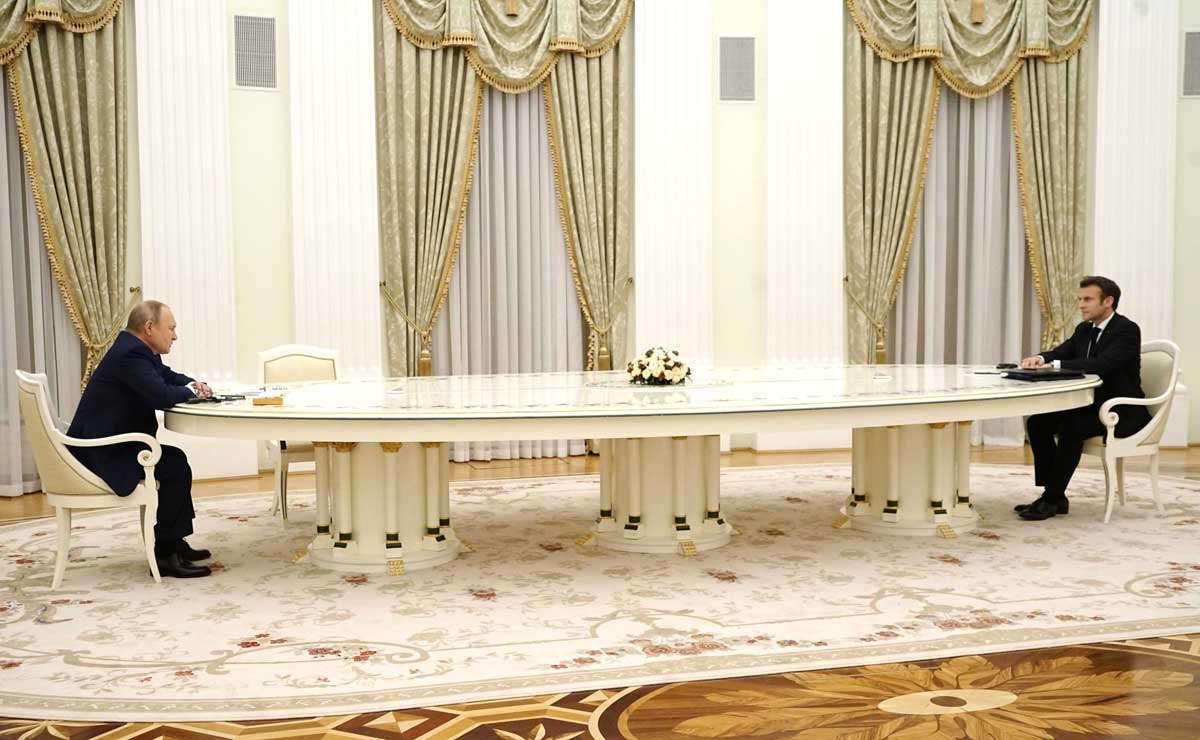After French President Emmanuel Macron’s visit to Ukraine and Russia, German Chancellor Olaf Scholz embarked on a visit of Ukraine and Russia. Scholz had visited the US, last week and discussed the Ukraine issue with Biden.
The timing of Scholz visit to Ukraine and Russia was important, given that the Biden Administration has said that Russia could attack Ukraine at any point of time (significantly, only last week, Putin had assured Macron that Russia had no plans of escalating conflict, and would not like to escalate tensions). In a media interaction on Monday, Pentagon Spokesperson John Kirby had said:
‘This is a military that, that continues to grow stronger, continues to grow more ready. They’re exercising, so we believe that he has a lot of capabilities and options available to him should he want to use military force,’
US has pulled out its diplomatic staff from Ukraine, while EU and NATO member states, including Germany, have urged their citizens to leave Ukraine.
Economic repercussions
The US and other members of the G7 have issued a stern warning to Russia, saying that it would face strong economic repercussions in case Moscow invades Ukraine. During his conversation with Vladimir Putin, on February 12, 2022, Biden had conveyed that any aggression by Russia would result in strong measures, and G7 Finance Ministers also reiterated the same in a statement on Monday, February 14, 2022.
It would be important to point out, that apprehensions with regard to a Russian invasion of Ukraine have also impacted global markets and oil prices. European indexes, including the UK’s FTSE 100, Germany’s Dax and France’s CAC 40 dropped significantly on Monday, February 14, 2022 along with US and Indian markets. Apart from this, crude prices went up to a seven year high crossing $95 a barrel.
Differences between US and France and Germany
One of the reasons cited for Russia’s aggressive stance are US support for Ukraine’s membership of NATO. France and Germany have however differed with the US on this issue. In 2019, then Ukrainian President Petro Poroshenko in 2019 signed a constitutional amendment which made a commitment towards making Ukraine a member of EU and NATO
During his visit to Ukraine, chancellor Scholz said that membership is not such an important issue and that it was “Strange that Russia makes this the subject of major political problems.’
The Ukrainian President, Volodymyr Zelenskiy also said that for Ukraine, NATO membership is not the absolute goal”
It would be pertinent to point out, that Ukraine’s Ambassador Vadym Prystaiko in a media interview had made remarks indicating that Ukraine may consider giving up its stand of joining NATO, in order to avoid war, but later denied the same.
Before embarking upon his visit of Ukraine and Russia, Scholz had warned that Germany would be compelled to impose sanctions and the Nordstream 2 Project, which runs from Western Siberia to Germany would be shelved (Russia accounts for 40% of Germany’s energy supplies). During Scholz’ US visit, Biden had also said that if tensions rise then the $ 11 Billion project owned by Gazprom would not go ahead. Said Biden:
‘The notion that Nord Stream 2 is going to go forward with an invasion by the Russians — that’s not going to happen.’
The role of both France and Germany has been important, while on the one hand they have kept the channels of communication with Putin open, and conveyed the reservations of US and its allies, on the other their stand vis-à-vis Ukraine membership of NATO is different.
Biden’s focus on working with allies has been beneficial, at the same time the reality is that there are differences between the approach of the EU and US vis-à-vis the Ukraine issue. EU countries especially Germany can not overlook their economic interests and the logic of geography. It is not just France and Germany, but many other allies which would be concerned over escalation of conflict and the likely economic consequences – specifically the rise in oil prices.


